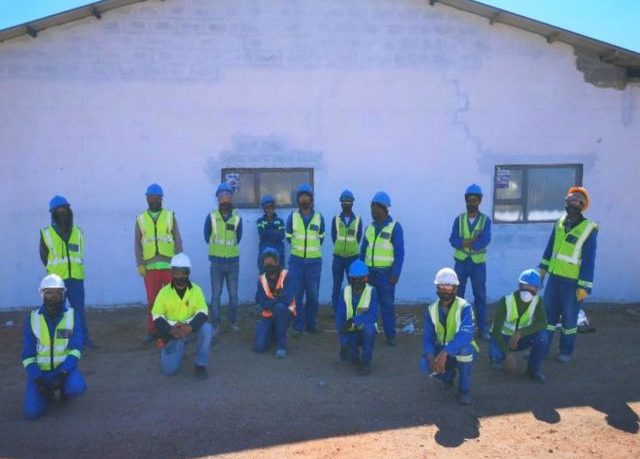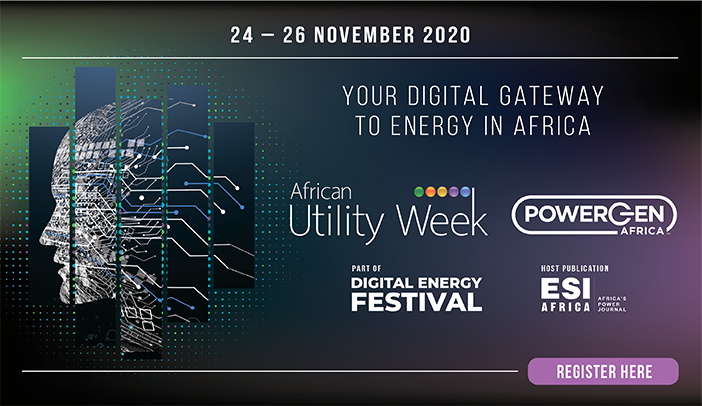Private equity company Actis recently hosted a digital dialogue – Sustainable Power Development: Contributing to Solutions – at the Digital Energy Festival, to paint a different picture about the roles that Independent Power Producers (IPPs) are playing beyond developing energy plants in Africa.
“We’re hosting this digital dialogue to demonstrate to you how our investments in the sustainable power development sector are contributing to solutions,” stated the session moderator, James Magor, Director for Responsible Investment at Actis.
The speakers included Jennifer Boca, head of Environmental, Social and Governance (ESG) at Lekela; Libby Hirshon environmental social and governance director at BioTherm Energy and Seynabou Ba, head of ESG Azura Power.
Magor noted that a sustainable power sector in Africa must be about more than generating electrons. More than checking boxes for lenders, more than painting classrooms, and much more than handing out football kits. “Power plants cannot operate in isolation from society.”
The session’s moderator acknowledged that COVID-19 is elephant in the room at every conference. How has Azura Power responded to the pandemic?
According to Ba, it is important for energy developers to have good relations with the communities they operate in. She also stressed the significance of having a social licence to operate as it breaks barriers. “I want to talk a little bit more about the social licence to operate because I think it’s something that is a bit overused in the industry, but it’s really important because it was a very important factor for us in responding to this pandemic,” said Ba.
She said if Azura did not have the social licence, it would have been much more difficult for the company to engage with stakeholders. “The licence was particularly important for us because 45% of our employees are from the community. So there was no way just as a business that we could protect our employees without looking at the impact on the community because the community was directly impacting us.”
Helping communities is the role of the public sector, argued the moderator. He, therefore, questioned if IPPs ensure that they are not creating a dependency. According to Ba, “dependency happens if you do not manage expectations, part of the social licence to operate, as I’ve mentioned, is the open communication channels. It also means you can state what you can do, you can engage with your interested parties on what you can do and what you can’t do.
“At the end of the day, any project that we Azura undertake, we look at the sustainability of the project, at which point we are going to be able to cut the umbilical cord. So this is for every company to decide ways to engage with the different stakeholders and set those expectations,” she said.
De-risking energy projects via social impact agenda
According to Boca, Lekela does note approach social impact as an “ad hoc thing. This is not something we do sort of retrospectively reacting to things. It’s a really intentional and deliberate approach to how we do our business. We have developed a community investment strategy, that sets a very clear business case for why we think it’s a good thing to have a social impact agenda and invest in our communities,” she says.
With regards to the social licences, Boca says they have realised that when working with a community is crucial in order to understand how to make a real impact. As IPPs, they end up having better relationships, “which means you can develop and maintain your social licence to operate, which means you can de-risk your project.”
Touching on the uniqueness of South Africa’s REIPPP programme, Boca said: “I would say, it’s not just focusing on delivering the megawatts, but it’s also asking the wider questions of how can this sector also play a role in the wider socio-economic development of the country.”
She further explained: “Part of the programme, it incorporates some socio-economic development obligations on the IPPs.
Boca says the programme shown is that it is possible for businesses to play a role. “I think, in the few years that we’ve been doing the REIPPPP, it has made a tremendous difference in terms of social impact. Just to give the highlights from the programme on social-economic development; and this is funds coming from IPPs going into communities to support social infrastructure education, help with drug and alcohol abuse programme, we’ve spent over $52 million in since bid window one, which was in 2011 up to 2019,” she stated.
Boca further noted that these funds go into supporting small businesses in communities. According to her, the programme has delivered over $17 million to South African communities. She noted that another key obligation that the REIPPP requires, the local content. So there is a huge drive for IPPs to localise their supply chains and to source from South Africa.
“While in the first instance that looks undoable, it’s actually been amazing to see that IPPs have smashed a lot of those targets and been able to procure from local businesses in South Africa, then again, having another multiplier effect to new jobs within the country.”
Skills and job creation
Operating assets do not create as much employment, Hirshon admitted. However, she added, “that’s where I think that our social investment pieces are so important because this is where we really can grasp these opportunities.”
Hirshon continued: “At Biotherm Energy, we have decided that education and skills development is fundamental to our strategy. In Kenya, we introduced a training programme prior to construction, which I know is quite unusual.”
The programme gave the youth in the area skills to enable them to take on the construction jobs, but also broader skills, Hirshon explained.
She further highlighted that the experience that local communities gain from the construction site gives them the ability to access other employment opportunities.
In conclusion, the speakers urged for IPPs to form collaborations in social investment in order to ensure that the impact is long term and transformational.
To watch this and many other sessions in full, register for the Digital Energy Festival for Africa:
– Africa Energy Forum sessions, click here
– Oil & Gas Council sessions, click here
– African Utility Week & POWERGEN Africa sessions, click here – FREE access
– ESI Africa sessions, click here – FREE access
The Digital Energy Festival is hosted jointly by four of Clarion Events’ leading energy brands Africa Energy Forum, African Utility Week & POWERGEN Africa and the Oil & Gas Council’s Africa Assembly and the leading energy journalESI Africaproviding six weeks of compelling content until 26 November.
Author: Babalwa Bungane
Babalwa Bungane is a content creator/editor for ESI Africa – Clarion Events Africa. Babalwa has been writing for the publication for five years. She has a great interest in social media due to its advantage of disseminating content.
This article was originally published on ESI Africa and is republished with permission with minor editorial changes.


















